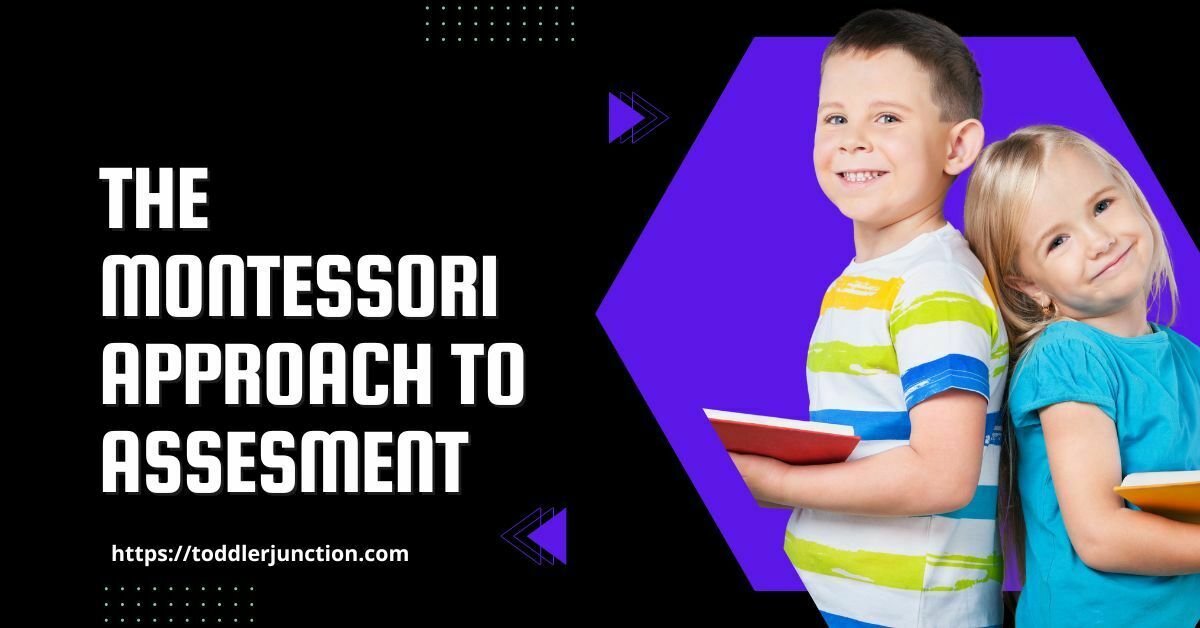In a Montessori classroom, teachers assess children informally on an ongoing basis. This helps the teachers to understand each child’s strengths, weaknesses, and interests. Formal assessments are done periodically and help identify the child’s progress in different areas.
Read Here: Do Montessori Schools Have Tests
What is the Montessori Approach?
The Montessori Approach is an educational approach developed by Italian physician and educator Maria Montessori. Based on her scientific observations of children, she believed that children learn best in an environment that supports their natural development.
The Montessori Approach is characterized by several distinctive features, including:
- An emphasis on the individual child
- A prepared environment designed to meet the needs of the child
- Multi-age classrooms
- Structured yet flexible curriculum
- A focus on practical life skills
The Montessori Approach is used in various settings, including public and private schools, childcare centers, and homeschooling environments.
The History of the Montessori Approach
The Montessori approach is an educational method developed by Italian physician and educator Maria Montessori. The Montessori method has been used in many parts of the world for over a century and continues to become more popular.
The Montessori approach is based on the belief that all children naturally desire to learn. This learning process is facilitated by providing children with a stimulating environment where they can explore and discover new things at their own pace.
Montessori classrooms encourage independence, creativity, and collaboration. Materials and activities are carefully chosen to meet the needs of each child.
The Montessori approach promotes academic achievement, social-emotional development, and positive disciplinary outcomes.

The Montessori Approach to Assessment
In a Montessori classroom, the assessment takes a unique approach. Unlike traditional classrooms, Montessori classrooms don’t focus on grade levels. Instead, assessment measures a child’s progress and helps them progress in their learning. This approach can be beneficial for both kids and parents.
Why is Assessment Important in the Montessori Approach?
Assessment is an essential part of the Montessori approach for several reasons:
- It provides teachers with information about each child’s progress and areas of need.
- It allows children to reflect on their learning and set goals for themselves.
- It helps families understand what their child is doing in school and how they can support their child’s learning at home.
What are the Characteristics of the Montessori Approach to Assessment?
The Montessori approach to assessment stands on the following fundamental principles:
- Assessment must be ongoing, sequential, and cumulative;
- It must take into account the whole child – their interests, aptitudes, and needs;
- Assessment must be flexible, adapting to the individual pace of learning of each child;
- It must encompass both academic achievement and social/emotional development.
How is the Montessori Approach to Assessment Used in the Classroom?
In the Montessori classroom, assessment is an ongoing process that happens through everyday observations of each child. The teachers use these observations to individualize each student’s learning experiences and understand each child’s strengths, weaknesses, and interests.
There are no formal tests or exams in a Montessori classroom. Instead, the assessment takes place through informal conversations, work samples, and checklists. These tools give teachers a well-rounded picture of each child’s progress and potential.
The Montessori Approach to Assessment is used in the following ways:
Informal Conversations:
Teachers have regular, one-on-one conversations with students about their learning experiences. These conversations help teachers understand what students are interested in and how they progress.
Work Samples:
Teachers collect work samples from students over time to track their progress. These samples include artwork, writing samples, or math work.
Checklists:
Teachers use checklists to keep track of which skills each student has mastered. These checklists help teachers know when students are ready to move on to new material.
Conclusion
The Benefits of the Montessori Approach to Assessment
The Montessori assessment approach has many benefits that make it an attractive option for educators. First, the Montessori Approach is student-centered, focusing on the student’s individual needs. This allows for a more tailored approach to assessment that can better meet the needs of each student.
Additionally, the Montessori Approach emphasizes the importance of collaboration between teachers, students, and parents. This collaborative approach can help ensure that everyone is on the same page regarding assessment and can help ensure that all stakeholders are invested in the process.
Finally, the Montessori Approach is flexible and can be adapted to meet the changing needs of students and educators. This flexibility makes it an ideal option for educators looking for an assessment solution in various settings.


